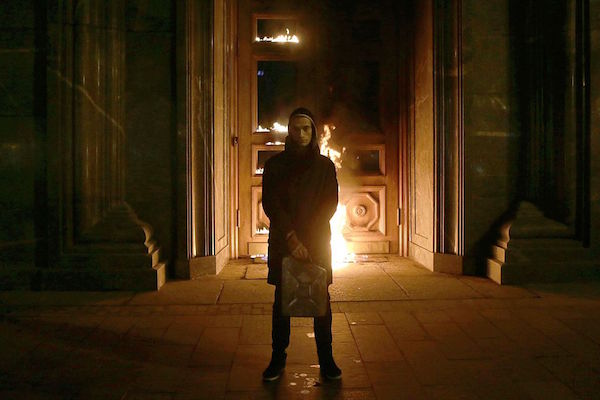
Russian performance artist Pyotr Pavlensky, 31, has been arrested after starting a fire at the entrance to the offices of the Federal Security Service of the Russian Federation (FSB). The agency is housed in the former offices of its successor, the Soviet Union’s notorious KGB.
“The FSB acts using a method of uninterrupted terror and maintains power over 146 million people,” said Pavlensky in a statement released alongside a video of the protest. The artist activist stood in front of the smoldering flames holding a gas can until police came to arrest him.
According to Reuters, Pavlensky is currently being detained and could potentially face charges of arson and/or petty hooliganism.
This is not the first time Pavlensky has made headlines for his radical performance art protests. In 2013, he nailed his scrotum to the ground in Red Square. The following year, he sliced off his earlobe while sitting naked on the roof of Moscow’s Serbsky psychiatric center. Pavlensky also protested the imprisonment of two members of Pussy Riot by sewing his lips shut in 2012.
He is so passionately convinced of his beliefs that Pavlensky actually convinced a member of Russia’s Investigative Committee assigned to interrogate him to quit his job.
The former government employee later testified in Pavlensky’s defense. The artist currently faces up to three years behind bars for holding pro-Ukraine protests in St. Petersburg in 2014.
Pavlensky’s most recent action took place in Moscow’s Lubyanka Square. Two journalists filming the protest were reported briefly detained but have since been released.
“Fear turns free people into a sticky mass of uncoordinated bodies,” added Pavlensky. “The threat of inevitable reprisal hangs over everyone who can be tracked with devices, have their conversations listened to, and who faces borders with passport control.”